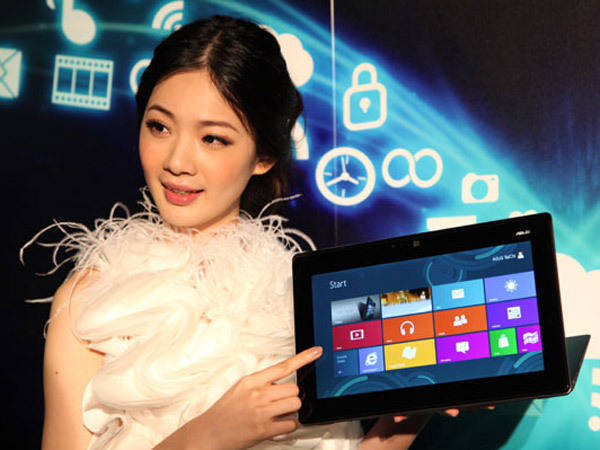Taichi solves tablet/laptop dilemma: fit two screens

Asus is well known for coming up with innovative form factors, and the Taichi, its new Windows 8 tablet/laptop hybrid, is another example. Taichi looks like an ultra-thin Ultrabook but the lid has two display screens, back to back. You can use it as a multi-touch tablet, with the lid closed, or open it up and use it as a conventional notebook (see video below).
It remains to be seen how much the extra screen adds to the price, as compared with the approach used by most convertibles, where a single screen is rotated through 180 degrees. However, the extra convenience may make it an attractive proposition.
In any case, the Taichi as shown at the Computex 2012 trade show in Taiwan is a high-end device with a third-generation Ivy Bridge Core i7 processor, 4GB of memory, SSD storage, dual cameras and two Super IPS+ Full HD screens displaying 1920 x 1080 pixels. The Computex prototype had 11.6 inch screens, but apparently a 13.3-inch version will also be available.
 Photo credit: Craig Simms/CBSi
Photo credit: Craig Simms/CBSi
The Asus press release says that "while they provide access to the same hardware, the two screens are completely independent of each other and can also be used simultaneously, which means the Taichi can be shared with two users for a host of innovative new applications."
A lot of those "new" uses could be old-style selling operations in insurance, banking and so on, where the customer can see and manipulate the touch-tablet screen while the salesman controls the keyboard and the business side of the operation. Since NFC is built in, the Taichi could also be used as an ultralight till/POS terminal, to collect payments. (Let's not mention Battleships.)
The operating system is Microsoft Windows 8, so there should be no problems running existing software, developing bespoke applications, and integrating Taichis into the corporate network.
Asus's previous innovations include the Transformer range -- which provides an Android tablet that converts to a laptop when you attach it to a keyboard dock -- and the PadFone, which converts an Asus Android phone into an tablet and then into a notebook. Asus has also launched the very shiny Zenbook range: these were the first official Ultrabooks, and were unveiled during Intel's keynote at last year's Computex.
If those products are a guide, the Taichi probably won't appear in the shops this year.
ASUS Taichi dual screen Windows 8 notebook - Computex 2012 (Official preview) http://youtu.be/3DNQc9rgV9A